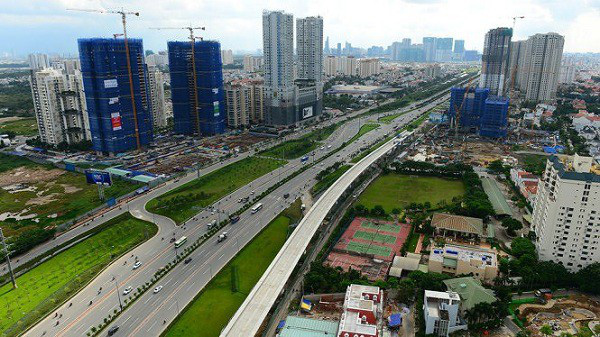
Vietnam targets buildings at least three smart cities in 2017-2020
According to the Ministry of Information and Communication (MIC), the biggest problem is that technical infrastructure cannot catch up with rapid urban development, causing traffic jams, lack of running water, flooding and pollution.
Smart cities will also require huge IT (information technology) human resources, which Vietnam is short of. VietnamWorks estimates that with the current 8 percent workforce growth rate, the country will lack 78,000 IT staff a year and 500,000 by 2020.
The ISO set of standards for smart city has 18 indicators in six areas: intelligent people, intelligent economy, smart living environment, intelligent digital government, smart life and smart communication.
However, Vietnam still has not set up national standards for smart cities that fit specific cultural, social and economic characteristics.
Smart cities will also require huge IT (information technology) human resources, which Vietnam is short of. VietnamWorks estimates that with the current 8 percent workforce growth rate, the country will lack 78,000 IT staff a year and 500,000 by 2020.
The ISO set of standards for smart city has 18 indicators in six areas: intelligent people, intelligent economy, smart living environment, intelligent digital government, smart life and smart communication.
However, Vietnam still has not set up national standards for smart cities that fit specific cultural, social and economic characteristics.
In Vietnam, a smart city is generally understood only as "the use of IT at a high level to improve the quality of people’s life".
The difficulties were mentioned at an international conference on smart cities held in 2017. The participants warned that huge money will be needed to build smart cities.
Sharing economy
Though Vietnam is still struggling to build smart cities, experts believe the development of new economic models taking full advantage of technology from abroad will help Vietnam overcome difficulties.
The sharing economy is one of the models. In Vietnam, Uber and Grab are the most typical example of the sharing economy. The ride-sharing service has created a ‘revolution’ in Vietnamese travel.
With a phone app capable of handling thousands or millions of information at once, Uber helps connect idle means of transport with people with travel needs, and reduces traffic on the road, thus easing pressure on infrastructure.
Dang Thanh Hung, head of VNPT’s Smart City Research Division, said ‘sharing’ is the key word that creates smart cities.
“People talk a lot about ‘sharing city’ and ‘sharing economy’. Smart urban areas also have open data that needs to be ‘shared’ with people and businesses,” he said.
“Sharing information and connecting data will be effective solutions to help build smart cities,” he said.
A survey conducted by Boston Consulting Group (BCG) commissioned by Uber found that HCM City’s urban infrastructure is overloaded with 8.2 million vehicles. However, if sharing vehicles become popular, the number of cars in circulation would decrease by 27 percent.
The difficulties were mentioned at an international conference on smart cities held in 2017. The participants warned that huge money will be needed to build smart cities.
Sharing economy
Though Vietnam is still struggling to build smart cities, experts believe the development of new economic models taking full advantage of technology from abroad will help Vietnam overcome difficulties.
The sharing economy is one of the models. In Vietnam, Uber and Grab are the most typical example of the sharing economy. The ride-sharing service has created a ‘revolution’ in Vietnamese travel.
With a phone app capable of handling thousands or millions of information at once, Uber helps connect idle means of transport with people with travel needs, and reduces traffic on the road, thus easing pressure on infrastructure.
Dang Thanh Hung, head of VNPT’s Smart City Research Division, said ‘sharing’ is the key word that creates smart cities.
“People talk a lot about ‘sharing city’ and ‘sharing economy’. Smart urban areas also have open data that needs to be ‘shared’ with people and businesses,” he said.
“Sharing information and connecting data will be effective solutions to help build smart cities,” he said.
A survey conducted by Boston Consulting Group (BCG) commissioned by Uber found that HCM City’s urban infrastructure is overloaded with 8.2 million vehicles. However, if sharing vehicles become popular, the number of cars in circulation would decrease by 27 percent.
